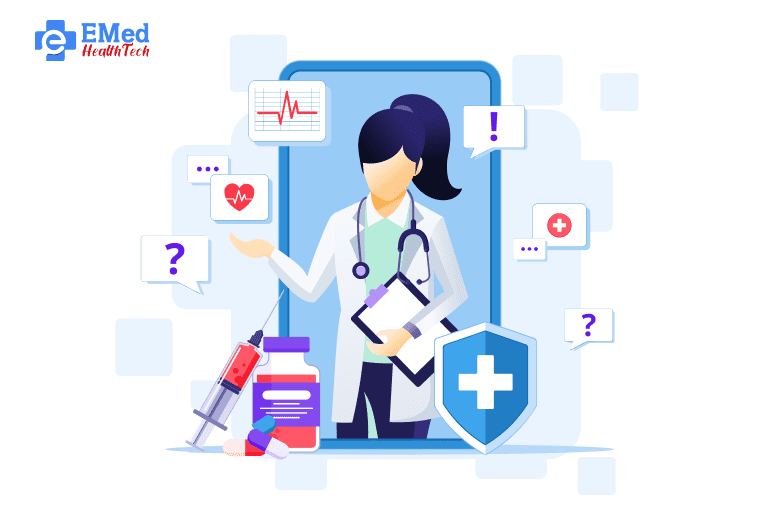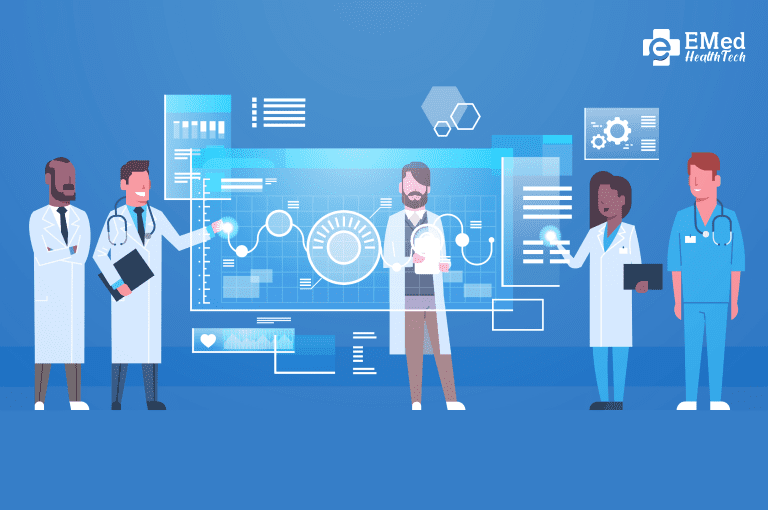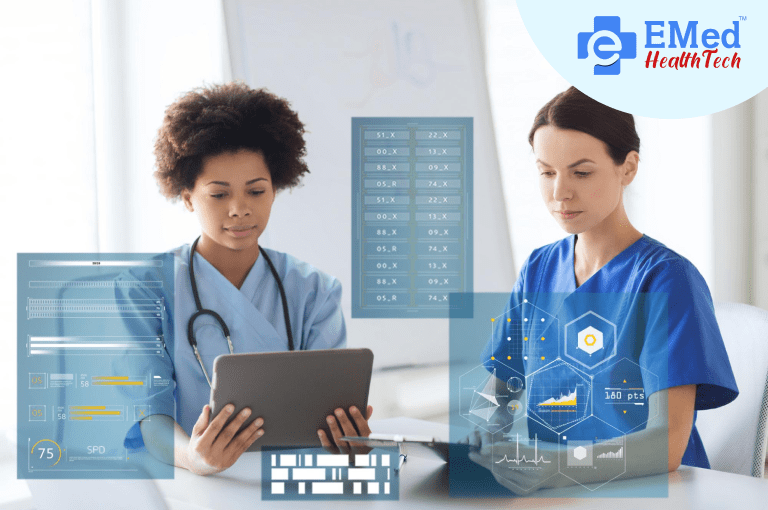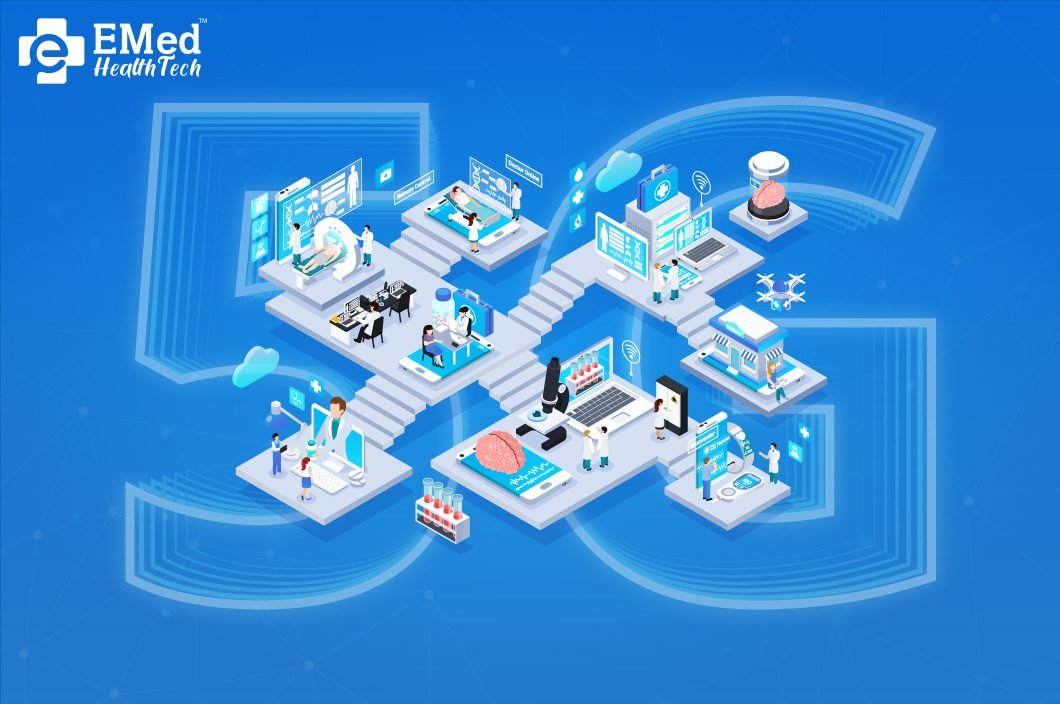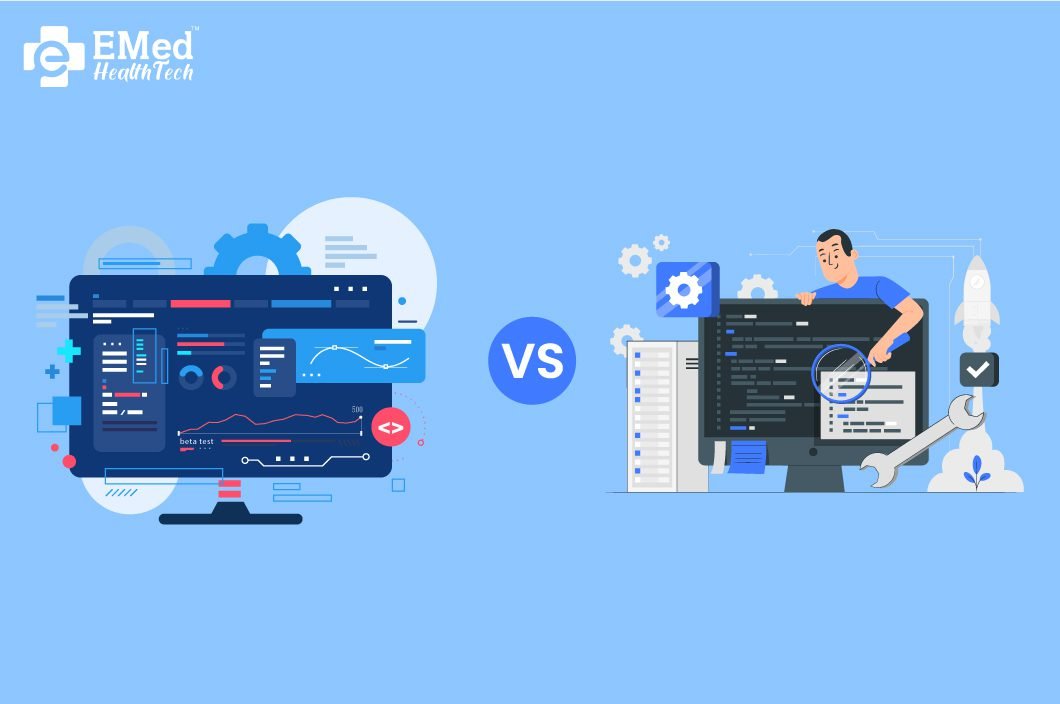Healthcare sectors are busier than before! Many individuals look for comfort and proper navigation by their doctors. To properly diagnose a patient, a doctor and patient must connect more effectively with relevant details, past medical history, and present data. However, how could all this data be safe and secure? To solve all issues, we are the leading healthcare app development company delivering custom healthcare solutions.
With the rise in technological advancement, protecting patient data privacy and security has become crucial in custom healthcare software development.
In this blog, we’ll explore the top strategies to ensure healthcare app development manages security and privacy compliance standards.
Why Privacy & Security Is Crucial In Healthcare App Development?
The healthcare sector obtains a huge database from the patients they are serving. To ensure these data are safeguarded, healthcare software development establishes a software designed considering strict security regulations. This healthcare software can safeguard a lot of sensitive data such as financial information, medical records, and personal data.
Safeguarding such data is not just required by law, but also by morality. Several regulatory systems such as HIPAA (Health Insurance Portability And Accountability Act) and GDPR (General Data Protection Regulation) impose strict guidelines in the USA and Europe.
Impacts Of Security Vulnerabilities
Security breaches in the healthcare sector may have worse impacts. You might have heard about an incident Anthem Inc. hacked in 2015, which exposed the personal information of millions of individuals. Such disastrous occurrences may lead to financial reduction, identity theft, and a decline in patient trust in the hospital. Moreover, a significant decrease in security breaches is seen in healthcare software development provided security and privacy protocols are followed.
Top Strategies Ensuring Healthcare Privacy In Healthcare App Development
Clear Privacy Protocols
Users’ confidence and reliability increase with the simple and uncomplicated privacy policy. It ought to specify what information is gathered, how it’s employed, and with whom it’s shared. In addition to being required by law, getting express consent from users before collecting and using their data is also recommended practice that upholds their autonomy.
User-Controlled Information
Giving users authority over their data is essential. Transparency and trust are improved by features that enable consumers to access, move, and delete their data. This control is compliant with laws such as GDPR that demand data portability and the right to be forgotten.
Secure Data Storage
Data security is essential regardless of where it is kept–on local devices or in the cloud. Access restrictions, frequent security updates, and strong encryption are all part of cloud storage security. Encrypting data and protecting the device from unwanted access are crucial procedures for local storage.
Compliance With Regulations
Ensuring compliance with regulations like GDPR and HIPAA is extremely important. Should not be overlooked. HIPAA guidelines focus on the importance of implementing security measures – technological and physical – to safeguard patient data. On the other hand, GDPR primarily focuses on user rights, responsibilities, and principles related to data protection.
Top Strategies Ensuring Healthcare Security In Healthcare App Development
Data Encryption In Healthcare App Development
A key component of healthcare app development is encrypting data. Encrypting data both during transit and when at rest is essential. This practice guarantees that even if intercepted the data remains unreadable without the encryption password. Custom healthcare software development implements strong encryption standards to ensure solid security.
Secure Authentication and Authorization
Multi-factor authentication is essential to develop healthcare apps with strict security. It is required for users to submit two or more verification factors to get access. Moreover, an essential procedure is role-based access control or RBAC. It lowers the possibility of internal breaches by limiting access to critical data to only authorized workers through the assignment of roles and permissions.
Regular Security Audits And Penetration Tests
It is easier to find flaws in the system with the assistance of regular security audits. In particular, penetration testing resembles cyberattacks to find vulnerabilities before malicious hackers do. By taking a proactive stance, healthcare app developers can quickly resolve possible problems and protect patient data.
Minimizing Data
One strategy to lower the danger of exposure is to only gather the data that is essential. Furthermore, patient privacy may be preserved by using data anonymization techniques such as deleting personal identifiers. Thus, developing hospital management software considering this procedure is particularly important when working with massive datasets in research and analysis.
Upcoming Trends In Custom Healthcare Solutions
Blockchain Technology For Data
Blockchain is a decentralized security solution that makes data alteration more difficult for hackers. Blockchain technology can improve data security in the healthcare sector by offering an unchangeable transaction ledger. When it comes to EHR software development, this technology may be very helpful in ensuring that medical records are unaltered.
AI In Healthcare App Development
Artificial Intelligence and machine learning may greatly improve security by detecting and averting risks in no time. AI, for instance, may detect anomalous behavior and analyze trends to notify managers of possible security breaches. AI may also be used to customize privacy settings so that individuals have more personalized control over their data.
Take Action To Develop Healthcare App With Security & Privacy Protocols
In addition to compliance, prioritizing security and privacy software development in healthcare is important in developing confidence and ensuring the protection of patient data. This article provides custom healthcare app developers thorough approach concerning data encryption, secure authentication, user control, and transparency in privacy rules.
Strong security and privacy in healthcare software development will depend on developers being alert and relying on new technologies like blockchain and AI when they become available.
We, at EMed HealthTech, understand how important it is for users and healthcare providers to ensure safe interaction and data handling. Our custom healthcare software development is done in compliance with stringent laws, protecting patient trust along with data. Contact us today for top-notch software development in healthcare.
